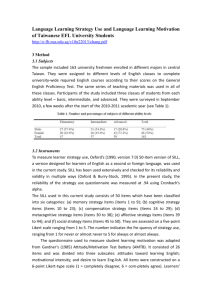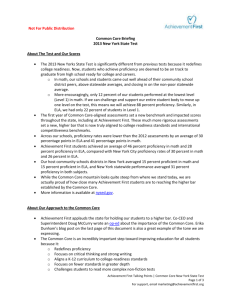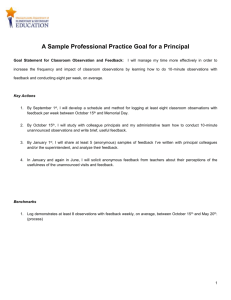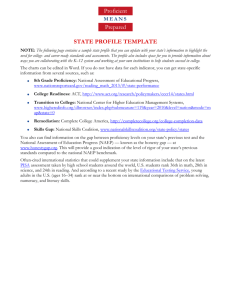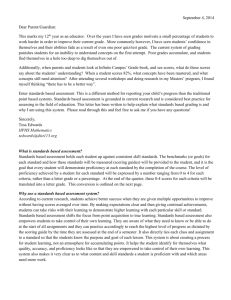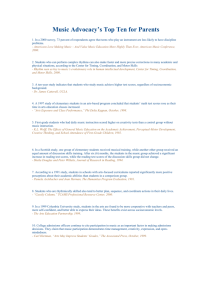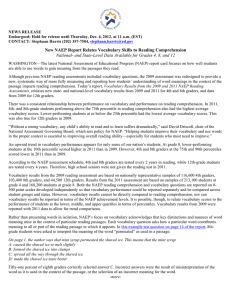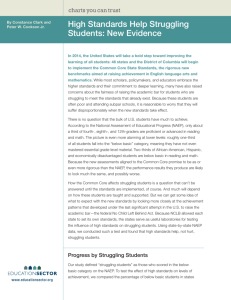Proficiency
advertisement
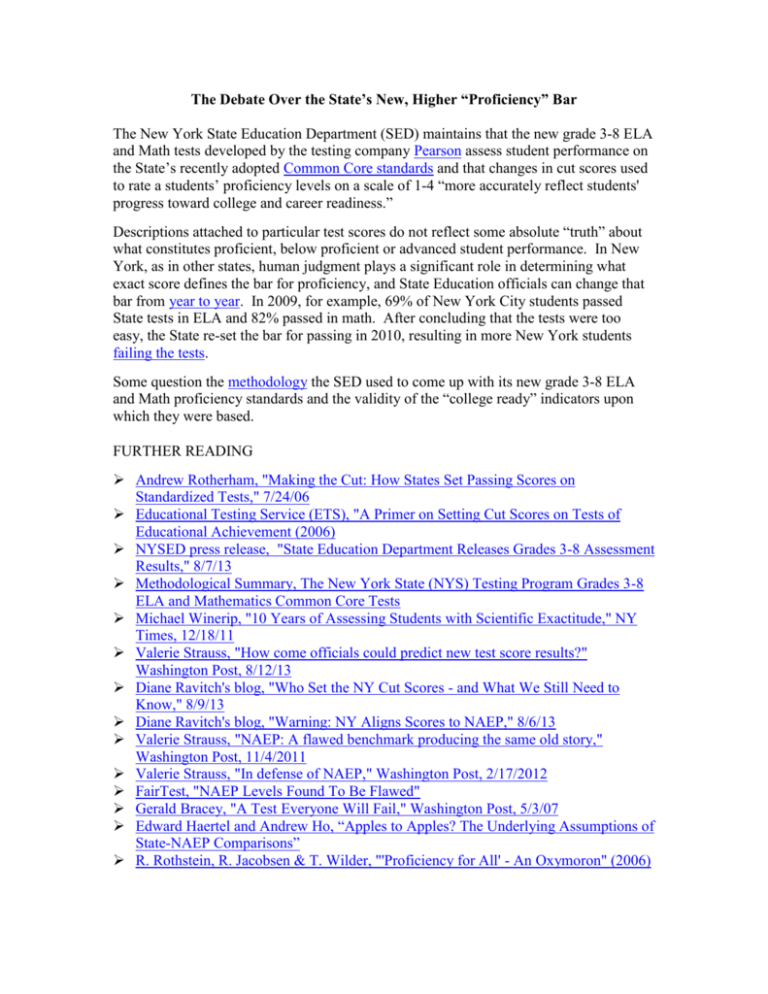
The Debate Over the State’s New, Higher “Proficiency” Bar The New York State Education Department (SED) maintains that the new grade 3-8 ELA and Math tests developed by the testing company Pearson assess student performance on the State’s recently adopted Common Core standards and that changes in cut scores used to rate a students’ proficiency levels on a scale of 1-4 “more accurately reflect students' progress toward college and career readiness.” Descriptions attached to particular test scores do not reflect some absolute “truth” about what constitutes proficient, below proficient or advanced student performance. In New York, as in other states, human judgment plays a significant role in determining what exact score defines the bar for proficiency, and State Education officials can change that bar from year to year. In 2009, for example, 69% of New York City students passed State tests in ELA and 82% passed in math. After concluding that the tests were too easy, the State re-set the bar for passing in 2010, resulting in more New York students failing the tests. Some question the methodology the SED used to come up with its new grade 3-8 ELA and Math proficiency standards and the validity of the “college ready” indicators upon which they were based. FURTHER READING Andrew Rotherham, "Making the Cut: How States Set Passing Scores on Standardized Tests," 7/24/06 Educational Testing Service (ETS), "A Primer on Setting Cut Scores on Tests of Educational Achievement (2006) NYSED press release, "State Education Department Releases Grades 3-8 Assessment Results," 8/7/13 Methodological Summary, The New York State (NYS) Testing Program Grades 3-8 ELA and Mathematics Common Core Tests Michael Winerip, "10 Years of Assessing Students with Scientific Exactitude," NY Times, 12/18/11 Valerie Strauss, "How come officials could predict new test score results?" Washington Post, 8/12/13 Diane Ravitch's blog, "Who Set the NY Cut Scores - and What We Still Need to Know," 8/9/13 Diane Ravitch's blog, "Warning: NY Aligns Scores to NAEP," 8/6/13 Valerie Strauss, "NAEP: A flawed benchmark producing the same old story," Washington Post, 11/4/2011 Valerie Strauss, "In defense of NAEP," Washington Post, 2/17/2012 FairTest, "NAEP Levels Found To Be Flawed" Gerald Bracey, "A Test Everyone Will Fail," Washington Post, 5/3/07 Edward Haertel and Andrew Ho, “Apples to Apples? The Underlying Assumptions of State-NAEP Comparisons” R. Rothstein, R. Jacobsen & T. Wilder, "'Proficiency for All' - An Oxymoron" (2006)

